Clifton Mount Jamaica Blue Mountain
Owned by the Sharp family since 1977 Clifton Mount Estate is fully integrated, with all aspects of processing handled internally. Quality is expertly controlled at every step of the way.
The farm is aligned to an eco and bird friendly philosophy and takes pride in excellent community and labor relations. To minimize water consumption, a state of the art coffee pulpery was installed on property. The farm also uses a recycling water system as well as the vermiculture methodology for pulp decomposition.
The estate is recognized as producing the finest world renowned Blue Mountain Coffee. The farm with its elegant Great House is located in the Newcastle region, on the Eastern slope of Catherine’s Peak at 4,300 ft. above sea level.
Owner: Sharp Family
Location: Newcastle region, St. Andrew
Total Area: 250 acres
Coffee Planted Area: 180 acres
Average Altitude: 4,300 feet
Drying: 100% sun-dried
Variety: 100% Arabica Typica
Processing: Fully washed or fermented based upon customer request
Cup Characteristics: The perfect and delicate balance of acidity, body and aroma. Its acidity is bright and delicate, its body gentle and velvety. Its aroma is softly penetrating and sweet with floral, spicy, and citric undertones. There is a presence of cocoa undertones in its aftertaste.
BRAZIL SUL DE MINAS
Our Brazil Sul De Minas is sourced from two family estates in the Sul de Minas growing region near the city of Varginha within the state of Minas Gerais, Brazil. The farms were established by the Ferraz family in the early 1900s. Both families manage their estates on a foundation of tradition, but they also work closely with the Mina Sul co-operative where their coffees are prepared for export using state-of-the-art milling equipment.
HARVEST
April - September
SOIL
Clay Minerals
ALTITUDE
925 - 1170 meters
PROCESS
Pulped natural and dried in the sun
COLOMBIAN MEDELLIN
Our Direct Trade Colombia Medellin is sourced from family-owned farms located in the municipality of Medellín in the department of Antioquia, Colombia. On average, each producer cultivates their coffee on less than 5 acres of land. Coffee producers use their own micro-mill to process harvested cherries, which allows for meticulous care in depulping, fermenting, and drying the coffee. Our relationship with the co-operative team gives us the opportunity to support local producers establishing higher earnings for the farmer.
HARVEST
April - June
September - January
SOIL
Volcanic loam
ALTITUDE
1300 – 1650 meters
PROCESS
Fully washed and dried inside solar dryers that provide protection from the rain
SAN IGNACIO PERU
Our San Ignacio Peru Norte is sourced from small-holder farms. Producers typically cultivate coffee on just a few acres of land intercropped with shade trees, bananas, corn, and beans. They carefully harvest and sort cherries before depulping, fermenting, washing, and drying the coffee using their own micro-mills. Partnering with CENFROCAFE works not only to support the commercial endeavors of its members, but also to facilitate the development of their communities. The CENFROCAFE financial team provides short-term credit that help farmers cover the front-end costs of the harvest and materials in the coffee production.
HARVEST
April - June
September - January
SOIL
Volcanic loam
ALTITUDE
1300 – 1650 meters
PROCESS
Fully washed and dried inside solar dryers that provide protection from the rain
WHAT IS A COFFEE COOPERATIVE?
A coffee cooperative is a group of coffee producers cooperating to gain better access to resources, leverage better marketing and business opportunities, provide training, and more.
Members will typically pay a fee that is then reinvested into the coffee community, based on the logic that combined funds can achieve more than if spent individually. Additionally, many large cooperatives have full-time members of staff that work in administration, marketing, education, research, and more.
There is in fact a wide range of projects that a cooperative might take on, including but not limited to:
Providing farming supplies
Providing technical assistance
Providing loans at lower interest rates than banks
Buying their members’ crops and selling them
Connecting their members directly to buyers
Facilitating certification
Educational assistance
Business advice and training
Coffee farming is a challenging industry – and, with global warming and fluctuating coffee prices, it’s unlikely to become easier any time soon. Cooperatives work together to support their members through these difficulties, via building infrastructure, providing training and financing, facilitating access to direct trade roasters or exporters, and more.
WHAT IS DIRECT TRADE?
Direct trade coffee is bought directly from the farmer. The roaster or purchaser pays the farmer for their coffee beans, establishing a direct relationship. The farmers are able to work with the buyers over time to get a fair deal and deliver a great product.
The end result of direct trade is that farmers get a better deal, since a larger amount of each transaction goes directly to them. Roasters also benefit, since they have far more control over the quality and type of coffee beans they’re supplied with.
Direct trade coffee is also known as “beyond fair trade coffee”, since it goes beyond the standards established under fair trade. It’s ethically sourced, higher quality and designed to facilitate stronger, better relationships between buyers and farmers.





